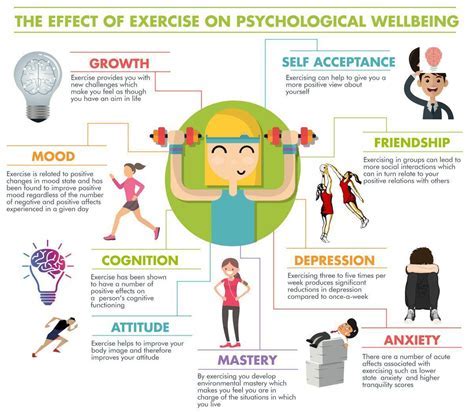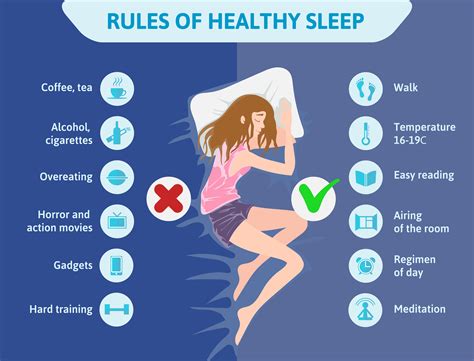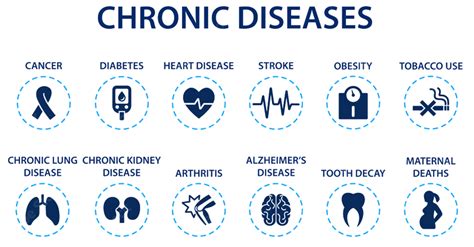Engaging in consistent physical activity yields an array of remarkable gains that extend beyond the surface level. Exercise, an activity often undervalued and overlooked, holds a wealth of untapped benefits that can transform your life in surprisingly impactful ways. By incorporating regular physical activity into your daily routine, you unlock a multitude of advantages that can enhance your physical, mental, and emotional well-being.
When it comes to maintaining a healthy lifestyle, exercise is a paramount component. It goes beyond the pursuit of a chiseled physique or achieving a number on the scale. Instead, exercise acts as a catalyst for a cascade of positive effects throughout your entire body. It stimulates the release of feel-good chemicals, such as endorphins, which elicit a sense of euphoria and reduce stress. Additionally, regular exercise enhances cardiovascular health, strengthening the heart and optimizing blood circulation – a crucial aspect of overall well-being.
Not only does regular exercise improve physical health, but it also holds profound implications for mental acuity and cognitive function. Engaging in physical activity increases blood flow to the brain, nourishing it with oxygen and essential nutrients. This enhanced cerebral circulation boosts cognitive abilities, sharpening focus, attention, and memory. Studies have even indicated that regular exercise can reduce the risk of age-related cognitive decline and neurodegenerative diseases, such as Alzheimer's.
Moreover, exercise acts as a potent stress-buster, enabling individuals to better cope with life's daily pressures. The release of endorphins during exercise helps to alleviate symptoms of anxiety and depression, promoting a more positive mindset and improved mental well-being. Whether through a dynamic workout or a calming yoga session, physical activity offers an emotional outlet and a means of self-expression, empowering individuals to manage their emotions effectively and maintain a balanced state of mind.
In summary, regular physical activity unleashes an array of surprising advantages that extend beyond the physical realm. By engaging in consistent exercise, individuals can experience improved cardiovascular health, enhanced cognitive function, and an uplifted emotional well-being. It is through the integration of exercise into our lives that we unleash our true potential, unlocking a myriad of benefits that contribute to a healthier, happier existence.
Enhanced Mental Well-being and Cognitive Performance: Unlocking the Hidden Benefits of Regular Physical Activity

A comprehensive exploration of the positive outcomes of consistent exercise often overlooks the profound impact it has on mental health and cognitive function. Engaging in regular physical activity can significantly improve overall mental well-being, bolster cognitive abilities, and positively influence various aspects of brain function. This section aims to shed light on the lesser-known benefits that exercise brings to both our minds and our intellectual capacities.
Mental health improvement: Adopting a regular exercise routine has been proven to reduce symptoms of anxiety and depression, promoting a sense of emotional well-being. Physical activity stimulates the release of endorphins, known as the brain's "feel-good" chemicals, which can alleviate stress and enhance mood. Engaging in exercise also provides a distraction from negative thoughts, allowing individuals to focus on the present moment and cultivate a more positive outlook.
Cognitive function enhancement: Regular exercise has a positive impact on various cognitive functions, including attention, memory, and problem-solving skills. Physical activity increases blood flow to the brain, delivering oxygen and vital nutrients that support optimal brain function. Furthermore, exercise promotes the growth of new neurons and strengthens connections between existing ones, thereby improving learning abilities and overall cognitive performance.
Reduced cognitive decline: Studies have indicated that long-term engagement in regular exercise may help reduce the risk of age-related cognitive decline and neurodegenerative diseases such as Alzheimer's and dementia. Physical activity stimulates the production of brain-derived neurotrophic factor (BDNF), a protein that plays a crucial role in the growth, survival, and maintenance of neurons. By effectively maintaining brain health, exercise can potentially delay the onset and progression of cognitive decline.
Enhanced creativity and problem-solving: Engaging in physical activity can boost creative thinking and problem-solving abilities. Exercise increases the production of certain neurotransmitters, such as dopamine and serotonin, which are associated with enhanced cognitive flexibility and improved executive function. These neurochemical responses not only heighten problem-solving skills but also stimulate creative thinking by facilitating novel connections and alternative perspectives.
Optimized stress management: Regular physical activity acts as a natural stress reliever, helping individuals better manage and cope with daily stressors. Exercise reduces the levels of stress hormones, such as cortisol and adrenaline, while simultaneously increasing the production of endorphins, providing a calming effect. This not only aids in stress reduction but also contributes to improved mental clarity and decision-making abilities.
Incorporating regular exercise into one's lifestyle offers numerous benefits beyond physical fitness. Improved mental health, bolstered cognitive function, reduced risk of cognitive decline, enhanced creativity, and better stress management are just a few of the lesser-known advantages that can be gained by engaging in regular physical activity. By prioritizing exercise, individuals can unlock the hidden potential of their minds and empower themselves with an improved mental well-being and heightened cognitive performance.
Increased Energy and Stamina
Physical activity has numerous advantages beyond just keeping you fit and healthy. Engaging in regular exercise can significantly boost your energy levels and enhance your stamina, allowing you to efficiently tackle daily tasks and challenges.
When you engage in consistent physical activity, your body releases endorphins, which are often referred to as the "feel-good" hormones. These endorphins promote feelings of happiness, reduce stress, and increase overall energy levels. As a result, you'll experience a renewed sense of vitality and a natural boost to your stamina.
In addition to the immediate energy surge, regular exercise also provides long-term benefits for sustaining energy throughout the day. It improves your cardiovascular health, helping your heart and lungs work more efficiently, delivering oxygen and nutrients to your body's cells. This efficient oxygenation leads to increased energy production at a cellular level, leaving you feeling more invigorated and capable of taking on physical and mental challenges with ease.
A higher level of physical fitness achieved through regular exercise also enhances your endurance and stamina. As your body becomes accustomed to physical exertion, it becomes more efficient in using oxygen and nutrients, allowing you to perform tasks for longer periods without feeling fatigued. Improved stamina not only makes you more productive in your daily activities but also enables you to participate in recreational activities or sports without getting exhausted quickly.
Moreover, exercising regularly boosts your metabolism, which plays a vital role in maintaining energy levels. A faster metabolism results in more efficient calorie burning, helping to prevent weight gain and increase energy availability. So, if you often experience midday slumps or lack the energy to perform activities you enjoy, incorporating regular exercise into your routine can be a game-changer.
If you want to experience a sustainable increase in energy and stamina, it's essential to engage in a variety of physical activities that challenge different muscle groups and incorporate both cardiovascular exercises and strength training. By maintaining a consistent exercise regimen, you'll reap the benefits of improved energy levels, enhanced endurance, and increased productivity in all areas of your life.
Better Sleep and Reduced Insomnia

A well-rested mind and body are essential for maintaining optimal health and overall well-being. In today's fast-paced world, many individuals struggle with sleep-related issues, such as insomnia or poor quality of sleep. However, introducing regular exercise into your routine can significantly improve your sleep patterns and reduce the occurrence of insomnia.
Engaging in physical activity stimulates the release of endorphins, commonly known as the "feel-good" hormones. These natural chemicals promote relaxation, reduce stress, and enhance mood, all of which contribute to achieving a peaceful and restful sleep. By including exercise in your daily routine, you can potentially alleviate the symptoms of insomnia and experience more rejuvenating sleep.
- Improved Sleep Duration: Regular exercise can help increase the duration of deep sleep, allowing your body to recover and recharge for the next day.
- Enhanced Sleep Quality: Physical activity promotes the production of melatonin, a hormone that regulates sleep, thereby improving the overall quality of your sleep.
- Reduced Sleep Disorders: Incorporating exercise into your routine has been shown to alleviate symptoms of various sleep disorders, such as sleep apnea and restless leg syndrome.
- Reduced Stress and Anxiety: Exercise acts as a natural stress-reliever and aids in the reduction of anxiety, both of which are common culprits for disrupted sleep patterns.
- Establishing a Sleep Routine: Engaging in regular exercise at the same time each day helps establish a consistent sleep routine, making it easier to fall asleep and wake up at desired times.
Incorporating regular exercise not only contributes to physical fitness and overall health but also plays a crucial role in improving the quality and duration of sleep. By taking the time to prioritize exercise in your daily routine, you can enjoy the benefits of better sleep and reduced insomnia, paving the way for a healthier and more energized life.
Enhanced Immune System Function
Improving the overall function of the immune system is one of the remarkable benefits that can be achieved through regular physical activity. Engaging in consistent exercise routines can have a positive impact on the body's natural defense mechanisms, bolstering its ability to fight against various harmful pathogens and diseases.
Regular exercise has been found to increase the production of antibodies, which are vital proteins that play a crucial role in identifying and neutralizing foreign invaders in the body. By promoting the production of antibodies, exercise helps to enhance the body's immune response, making it more efficient in recognizing and eliminating potential threats.
A robust immune system is also characterized by its ability to modulate inflammation effectively. Exercise stimulates the release of anti-inflammatory molecules, such as cytokines, that help regulate the body's inflammatory response. This mechanism aids in maintaining a balanced immune system, preventing chronic inflammation and reducing the risk of various inflammatory diseases.
Additionally, regular physical activity contributes to a healthy cardiovascular system, which plays a significant role in supporting the immune system. Exercise improves blood circulation, allowing immune cells to move freely throughout the body, efficiently reaching areas that need protection or repair. Adequate blood flow also helps in carrying away waste products and toxins, ensuring optimal immune function.
Exercise has been shown to promote better sleep patterns, which is another vital aspect of an enhanced immune system. Quality sleep allows the body to replenish and repair itself, including the production of immune cells. By improving sleep quality, exercise indirectly supports the immune system's ability to function optimally, reinforcing its defenses against potential threats.
Last but not least, regular physical activity contributes to overall stress reduction. Stress is known to have a negative impact on the immune system, dampening its response and making it more susceptible to infections. Engaging in exercise helps alleviate stress and uplift mood, thus indirectly supporting the immune system and its ability to defend the body.
Lowered Risk of Chronic Diseases

Engaging in regular physical activity can have a significant impact on reducing the likelihood of developing chronic diseases. These conditions, which persist or recur over a prolonged period, can have a detrimental effect on the overall quality of life and often require ongoing medical intervention. By incorporating exercise into your daily routine, you can decrease your risk of developing these long-term health issues.
| Chronic Disease | Description |
|---|---|
| Cardiovascular diseases | Conditions that affect the heart and blood vessels, including coronary artery disease, heart failure, and stroke. |
| Diabetes | A metabolic disorder characterized by high blood sugar levels, resulting from the body's inability to produce or effectively use insulin. |
| Osteoporosis | A condition marked by weakened and brittle bones, increasing the risk of fractures and decreasing bone density. |
| Hypertension | High blood pressure, which can lead to various health complications such as heart disease, stroke, and kidney problems. |
| Certain cancers | Regular exercise has been shown to reduce the risk of developing certain types of cancer, such as colon, breast, and lung cancer. |
Physical activity promotes a healthy cardiovascular system, helps maintain balanced blood sugar levels, strengthens bones, and improves blood pressure control. Moreover, it enhances the function of the immune system, reduces inflammation, and aids in maintaining a healthy body weight, all of which contribute to a decreased risk of chronic diseases.
FAQ
What are some benefits of regular exercise?
Regular exercise has multiple benefits including improved heart health, weight management, increased energy levels, better sleep quality, and reduced risk of chronic diseases.
Can regular exercise help with weight loss?
Yes, regular exercise can contribute to weight loss by burning calories and increasing metabolism. It also helps in building lean muscle mass, which further helps in maintaining a healthy weight.
Does exercise have any mental health benefits?
Indeed, exercise is not only beneficial for physical health but also has positive effects on mental well-being. It helps in reducing stress, anxiety, and symptoms of depression. Regular exercise also improves mood and promotes a sense of overall well-being.
How much exercise should one aim for to reap its benefits?
The recommended amount of exercise for adults is at least 150 minutes of moderate-intensity aerobic activity or 75 minutes of vigorous-intensity activity, along with muscle-strengthening activities twice a week. However, any amount of exercise is better than none, so individuals should aim to incorporate physical activity into their daily routine according to their abilities and preferences.
Can exercise help in preventing chronic diseases?
Yes, regular exercise plays a crucial role in preventing chronic diseases such as heart disease, type 2 diabetes, and certain types of cancer. It helps in maintaining healthy blood pressure levels, improving cardiovascular health, and boosting the immune system.



